Morning Altars: Beauty as Creation Care
“You shall make an altar of earth for Me, and sacrifice on it your burnt offerings and your peace offerings, your sheep and your oxen. In every place where I cause My Name to be recorded and remembered [through revelation of My divine nature] I will come to you and bless you.”
Exodus 20:24 AMP
Nothing stirs my heart like stepping into nature, with open hands and heart, to gather what the earth offers in each season—fallen leaves, pinecones, stones, seeds, petals, feathers. Out of these humble materials, beauty is born. This is the practice of Morning Altars, nature mandalas created as impermanent works of art, meant to honor both the earth and the Spirit that animates it.
The practice, founded by artist and teacher Day Schildkret (morningaltars.com), invites us into a conversation with creation itself. It is part ritual, part meditation, part play. We collect what has already fallen, arrange it with intention, and witness the patterns of symmetry, surprise, and story that emerge. Each altar is temporary—eventually scattered by wind, rain, or passing animals. This impermanence reminds us of the fleeting nature of life and the call to treasure the present moment.
Altars in the Wilderness
Because I spend much of the year traveling between places—mountains, deserts, coastlines—Morning Altars have become one of the ways I root myself wherever I am. They help me slow down and learn the language of the land. Each place has its own rhythm, its own palette of textures and tones.
In Colorado, I gather aspen leaves and river stones. In Mexico, seashells and driftwood. In Germany, acorns and moss. The materials change, but the intention stays the same: to listen, to belong, to bless the ground beneath my feet and to be blessed in return.
These small altars have become companions on the journey—reminders that home is not a fixed location but a relationship with the earth. Wherever I am, I can build a circle of beauty and prayer. It is my way of saying thank you to the land that holds me for a little while before I move on.
Morning Altars in Retreat Life
At our Loto retreats, Morning Altars become more than a creative exercise; they are thresholds. Guests are guided into nature to forage, noticing textures, colors, and shapes they may have overlooked. With quiet reverence, we create together, weaving mandalas on the forest floor and tabernacle tents. The process is contemplative and collaborative, inviting participants to slow down, to listen, and to embody gratitude for what the land provides.
For many, this practice becomes a prayer without words—a tactile form of worship, an embodied acknowledgment of God’s handiwork in every seed and stone. When we step back from our finished altar, we see not only the beauty of the materials but also the beauty of our attention, presence, and shared creativity.
Beauty as Creation Care
In a world that often treats nature as disposable, creating beauty from the forest’s gifts becomes a radical act of reverence. It teaches us to value the earth not for what it produces or consumes, but for what it is. To create beauty is to participate in God’s ongoing creation, to say with our hands and hearts, “This world is worth cherishing.”
Morning Altars align closely with the Japanese practice of shinrin-yoku, or forest bathing. Both invite us to immerse ourselves in nature with all our senses—breathing in the scent of pine, feeling the texture of bark, listening to the hush of leaves. This immersion awakens awe, and awe awakens care. When we create with the earth, we are far more likely to protect it.
The Call to Care
Each altar eventually fades back into the landscape, but the posture it cultivates remains within us: reverence, attentiveness, gratitude. These are the seeds of creation care. By slowing down and creating beauty, we train ourselves to see the earth not as a resource but as a sacred trust.
In the words of Psalm 24:1, “The earth is the Lord’s, and everything in it.” When we treat the land as holy ground, we join in the great work of restoration—what Jewish tradition calls tikkun olam, repairing the world. So the next time you walk through the forest, pause. Notice what has fallen at your feet. Let your hands arrange it into a small circle of beauty. And in that circle, may you discover both the fleeting and eternal Presence of God.
Questions to Consider
How does creating beauty, even something that won’t last, shape your awareness of God’s presence?
In what ways might slowing down in nature (forest bathing, Morning Altars, walking, silence) reawaken your care for creation?
How can the impermanence of these altars teach you to hold your own life, relationships, and work with more reverence and less grasping?
Disclosure: This post may contain affiliate links. If you click through a link and make a purchase, it will earn me a small commission, at no additional cost to you! See our disclaimer for details.

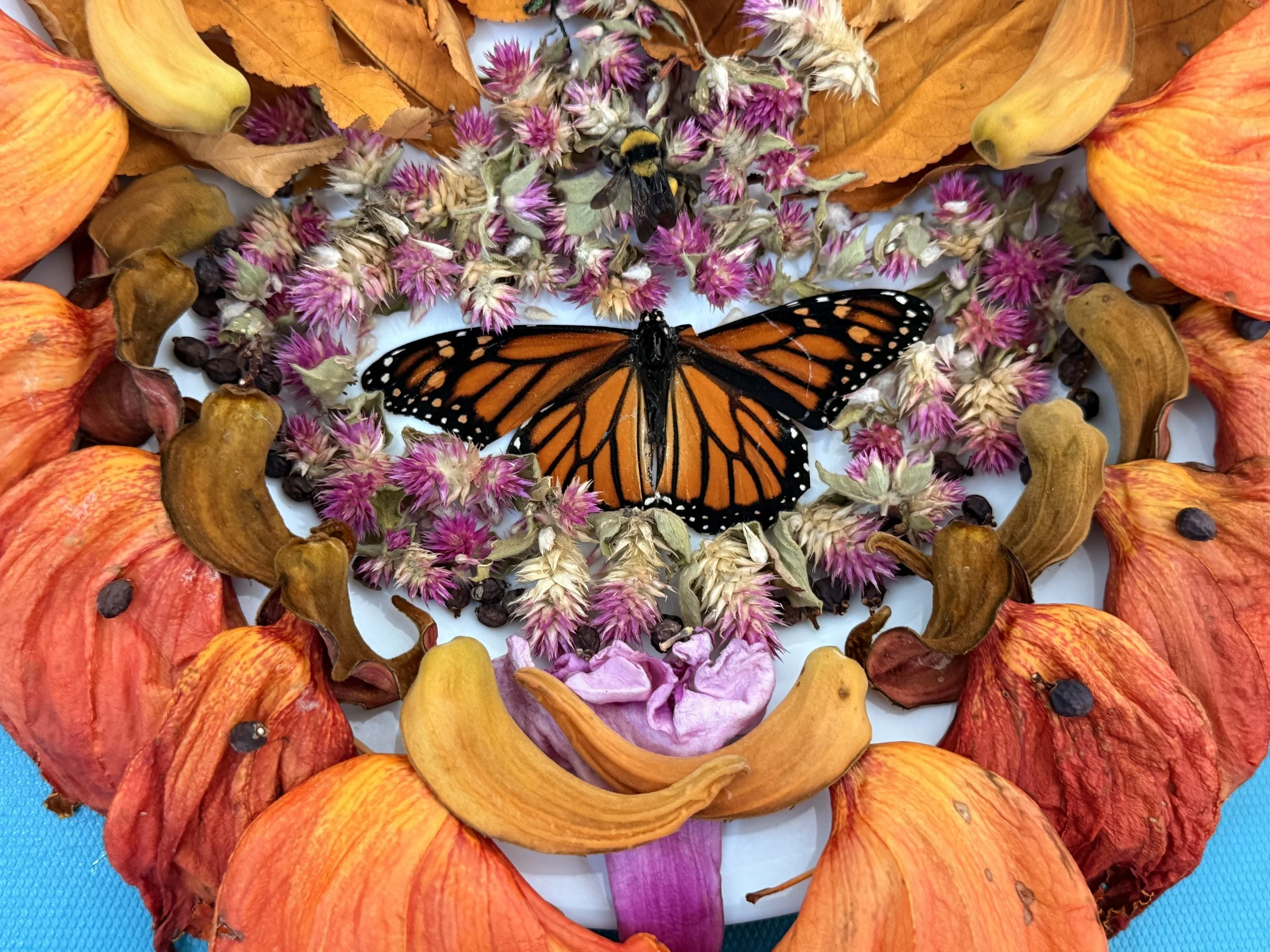

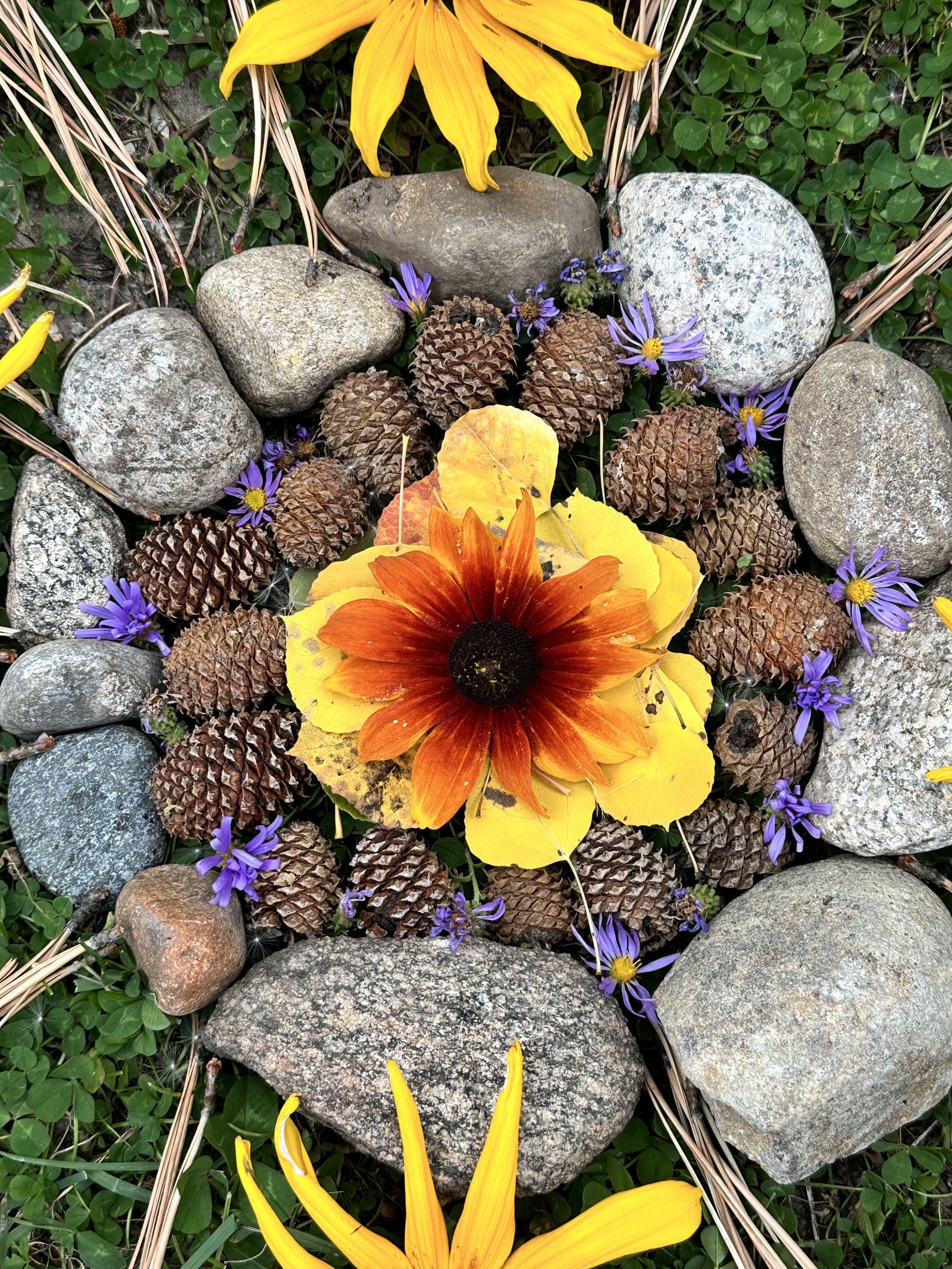
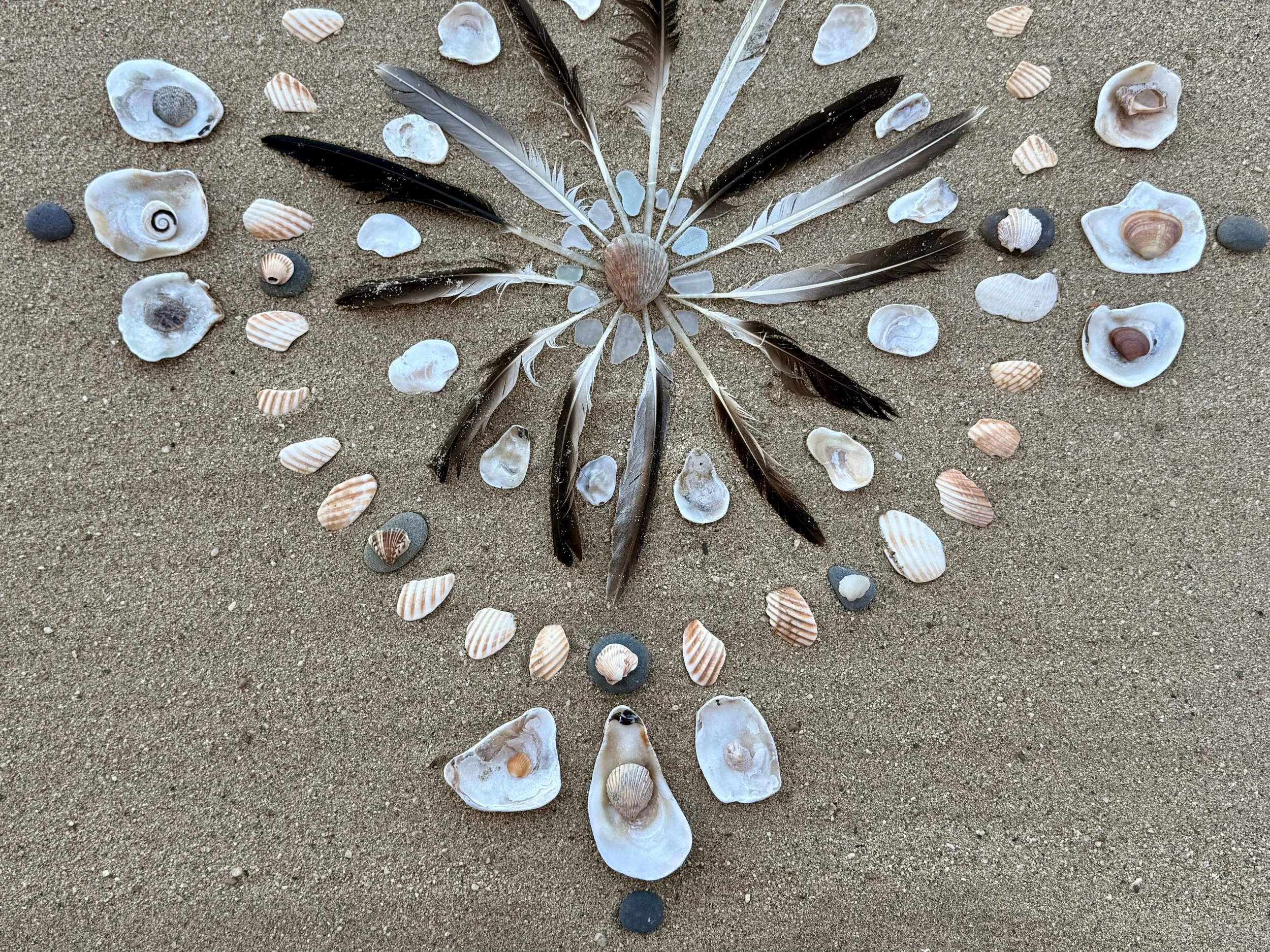
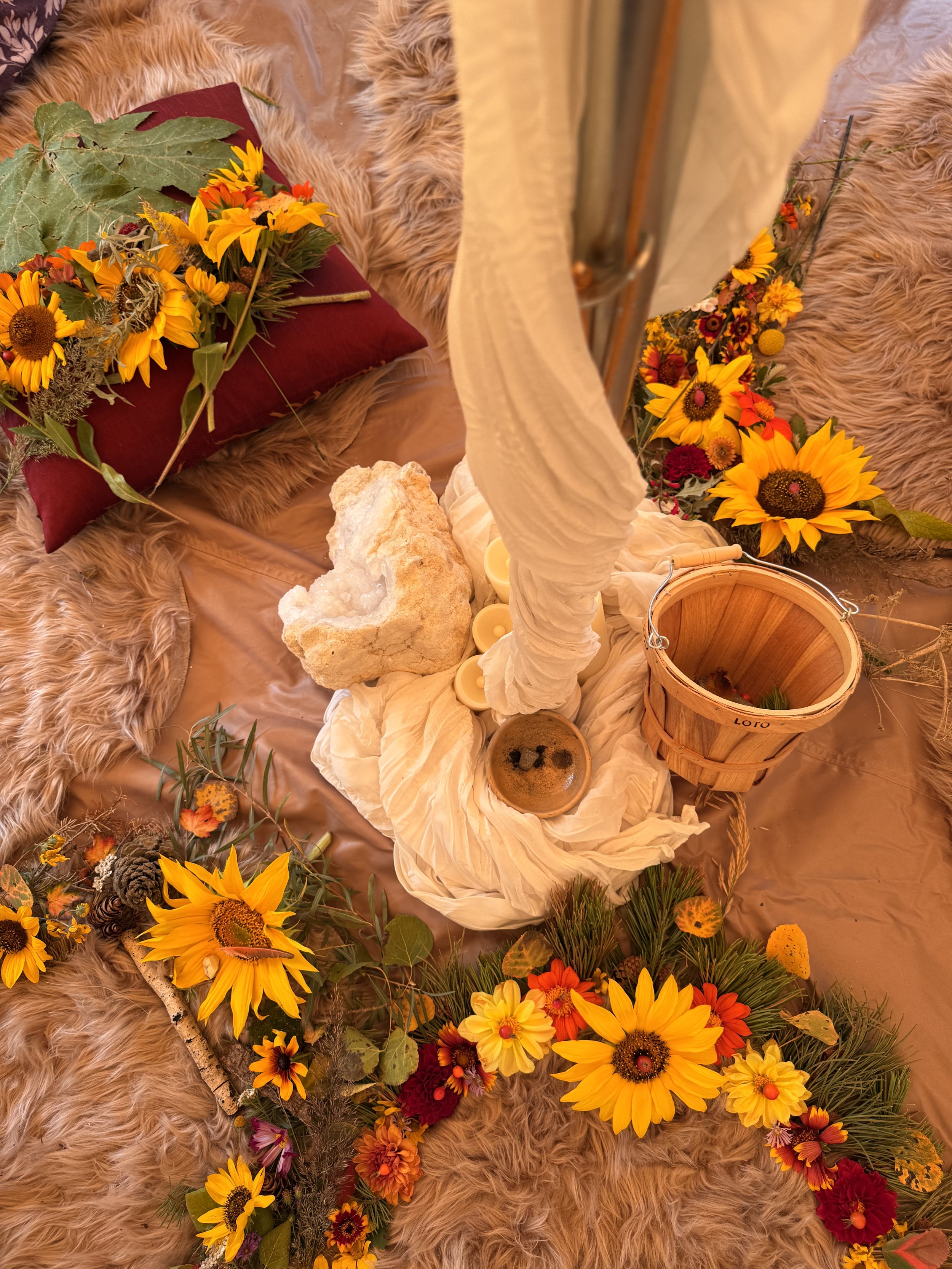
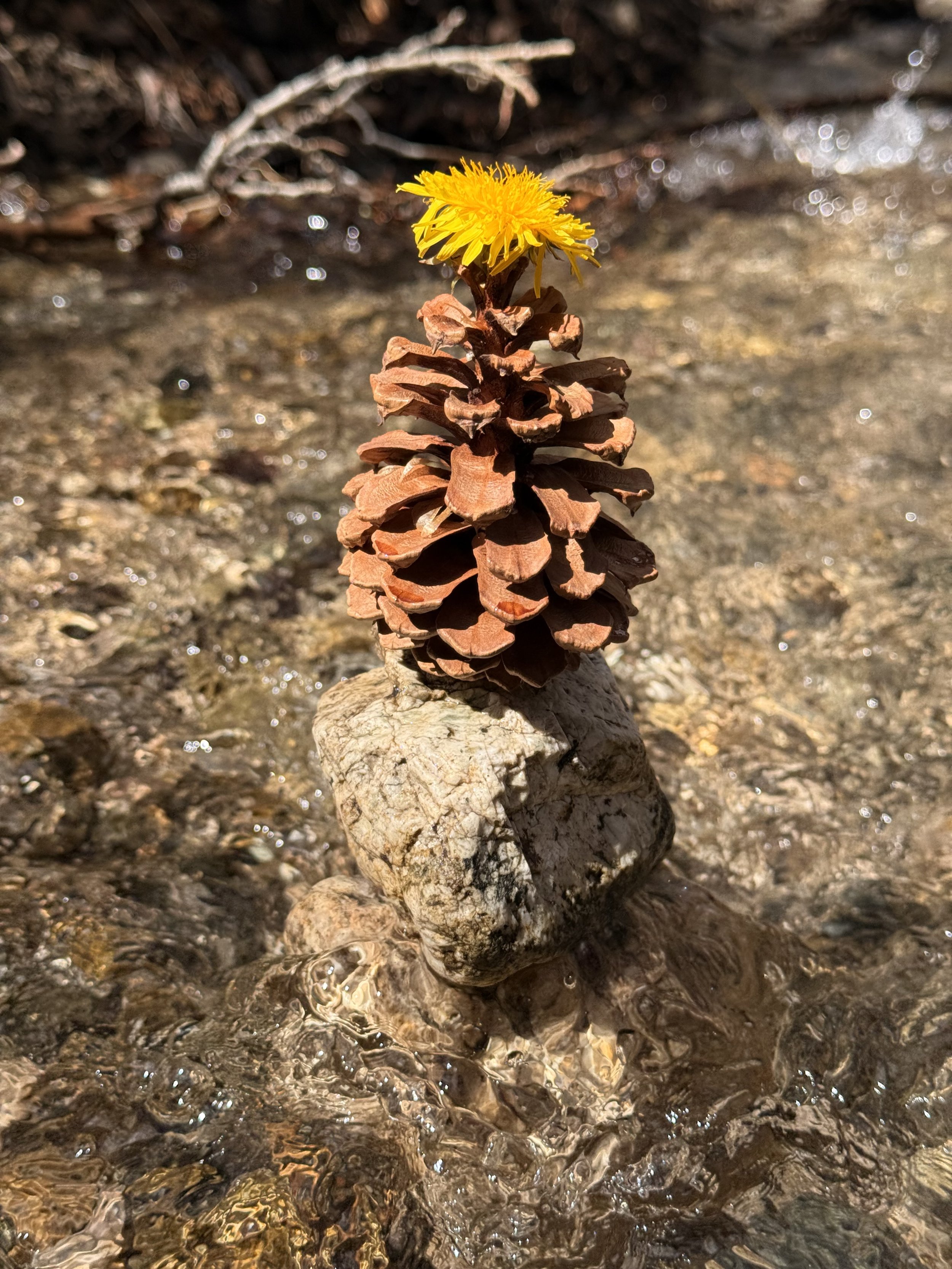
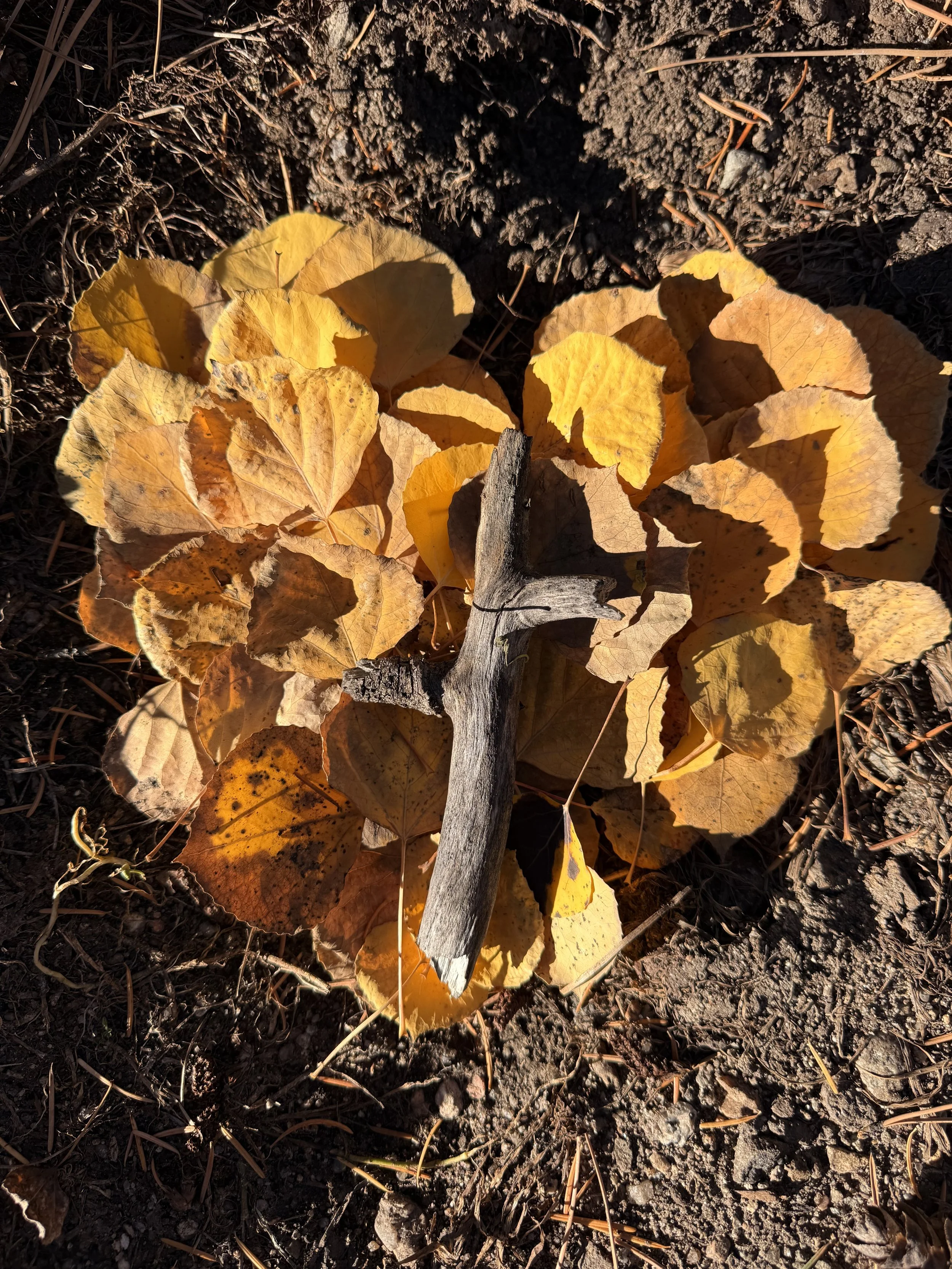





Nothing stirs my heart like stepping into nature, with open hands and heart, to gather what the earth offers in each season—fallen leaves, pinecones, stones, seeds, petals, feathers. Out of these humble materials, beauty is born. This is the practice of Morning Altars, nature mandalas created as impermanent works of art, meant to honor both the earth and the Spirit that animates it.
The practice, founded by artist and teacher Day Schildkret (morningaltars.com), invites us into a conversation with creation itself. It is part ritual, part meditation, part play. We collect what has already fallen, arrange it with intention, and witness the patterns of symmetry, surprise, and story that emerge. Each altar is temporary—eventually scattered by wind, rain, or passing animals. This impermanence reminds us of the fleeting nature of life and the call to treasure the present moment.